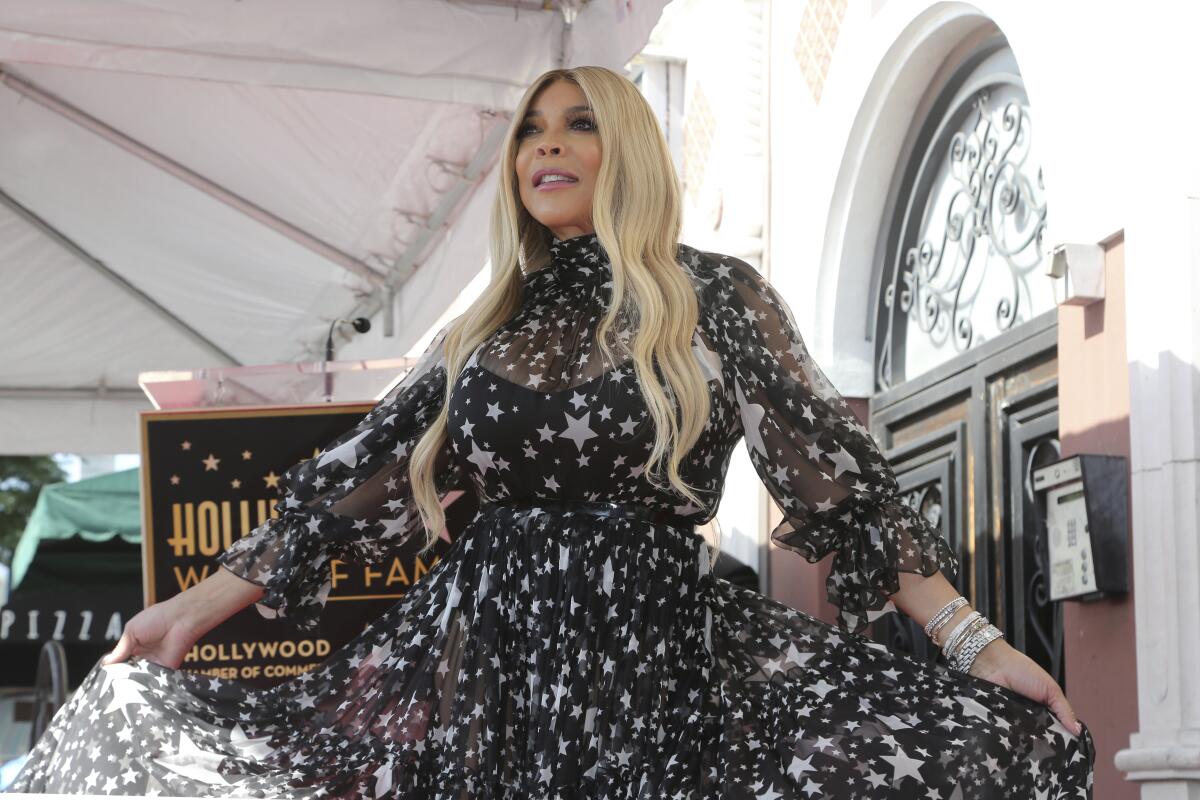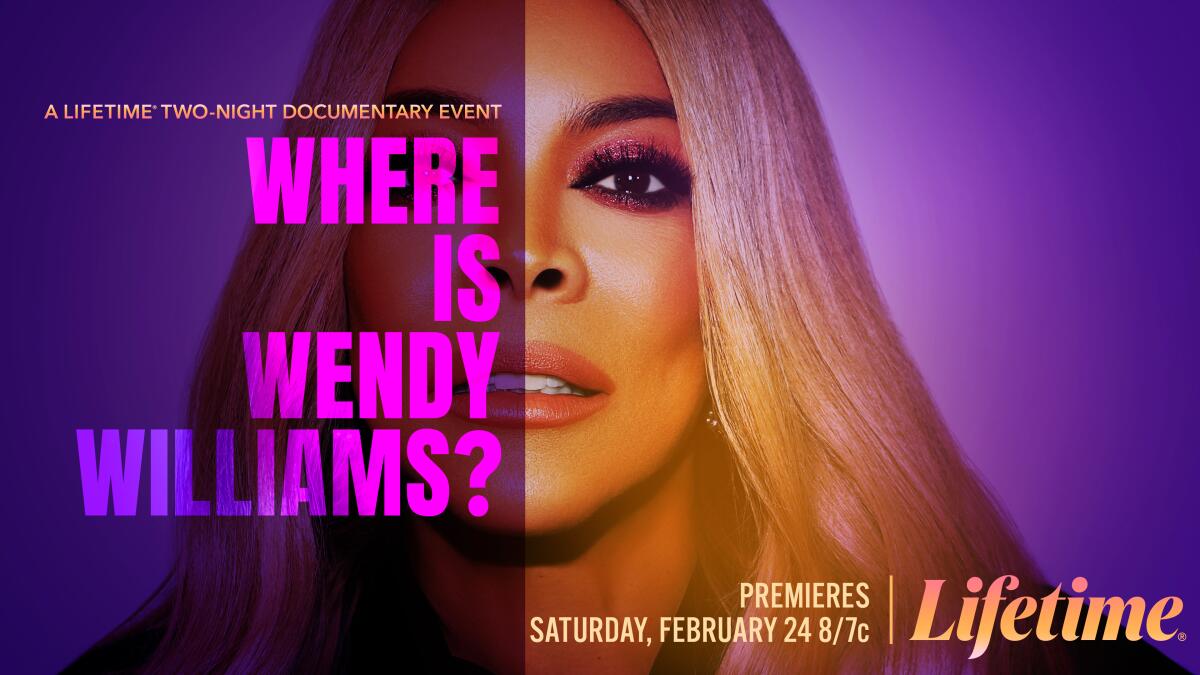Wendy Williams documentary can proceed on Lifetime amid guardian’s lawsuit, judge rules

- Share via
A New York judge ruled that Lifetime’s “Where Is Wendy Williams?” documentary can air as originally scheduled, amid one woman’s efforts to keep the project from going live.
Days before the documentary’s premiere, a woman named Sabrina Morrissey filed a lawsuit in New York Supreme Court against Lifetime parent company A+E Networks and production company Entertainment One (also known as eOne). Morrissey filed her lawsuit Thursday while “acting in her capacity” as the “temporary guardian of W.W.H.” (Wendy Williams Hunter). I Morrissey also requested a temporary restraining order “prohibiting publication of [the] documentary,” according to legal documents reviewed by The Times.
New York Supreme Court judge Peter H. Moulton decided Friday afternoon that the Lifetime project can proceed to broadcast as initially intended. He wrote in court documents that Morrissey’s restraining order request was an “impermissible prior restraint on speech that violates the First Amendment of the U.S. Constitution.”
Moulton also declined to vacate or stay a second order from Morrissey that requested the court keep her case sealed. A hearing on that matter is set for Tuesday.
Wendy Williams’ team confirmed that the TV personality’s health has taken a turn for the worse. She was diagnosed with aphasia and frontotemporal dementia.
Legal representatives for A+E and eOne filed an appeal — also sealed — on Friday, but did not immediately respond to The Times’ request for comment. Morrissey also did not respond to The Times’ request for comment.
The new Lifetime documentary, set to premiere Saturday evening, will turn the tables on Williams, who solidified her place in the daytime talk space with unapologetic and scathing commentary about trending and pop culture topics. “Where Is Wendy Wiliams?” seeks to shed light on the TV host’s life and the physical, mental and financial struggles that loomed ahead of her TV departure in 2022. Williams was placed under financial guardianship amid a legal battle with Wells Fargo.
“The Wendy Williams Show” concluded after 13 seasons in 2022, though its eponymous host was absent for its series finale. The talk show was canceled as Williams faced several health issues, including her ongoing battle with Graves’ disease, a thyroid-related autoimmune condition.

Earlier this week, representatives for Williams announced in a statement that the 59-year-old TV personality has been diagnosed with frontotemporal dementia and aphasia. The missive detailed concerns about Williams’ difficulty in processing information, noting that she “began to lose words, act erratically at times, and have difficulty understanding financial transactions.”
The statement continued: “The decision to share this news was difficult and made after careful consideration, not only to advocate for understanding and compassion for Wendy, but to raise awareness about aphasia and frontotemporal dementia and support the thousands of others facing similar circumstances.”
Aphasia and frontotemporal dementia are the same mental conditions afflicting “Die Hard” actor Bruce Willis, who ended his decades-long acting career in 2022 amid his diagnosis.
Williams’ loved ones told People this week that she is receiving treatment “in a wellness, healing type of environment,” but that they are unable to reach the former TV star “due to a lack of communication with Williams’ guardian.”
Alex Finnie, William’s niece who is featured in the forthcoming Lifetime doc, opened up about her aunt’s condition in a conversation with ABC News’ Deborah Roberts. A clip of the interview aired Thursday on “Good Morning America.”
Former ‘Wendy Williams Show’ host is home after staying in a wellness facility where she was ‘seeking help to manage her overall health issues.’
“When I saw her, she didn’t have to say one thing. I knew that every cylinder is not firing the way it should,” Finnie said.
Finnie also said that her aunt is an executive producer for the Lifetime project and sees the documentary as an opportunity for Williams to “take ownership of my story.”
“What people are going to see is a broken woman who has had the world on her shoulders for so long, and just cracked,” Finnie said. She added that Williams still wants to make a TV comeback.
Finnie did not respond to The Times’ request for comment about the lawsuit on Friday.
Times researcher Cary Schneider contributed to this report.
More to Read
The complete guide to home viewing
Get Screen Gab for everything about the TV shows and streaming movies everyone’s talking about.
You may occasionally receive promotional content from the Los Angeles Times.









